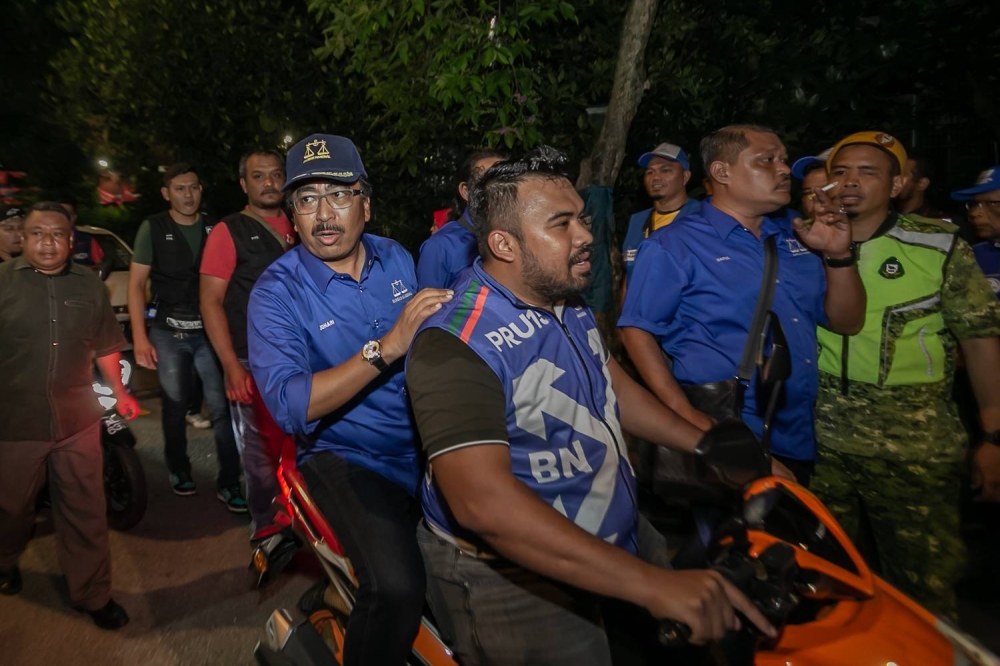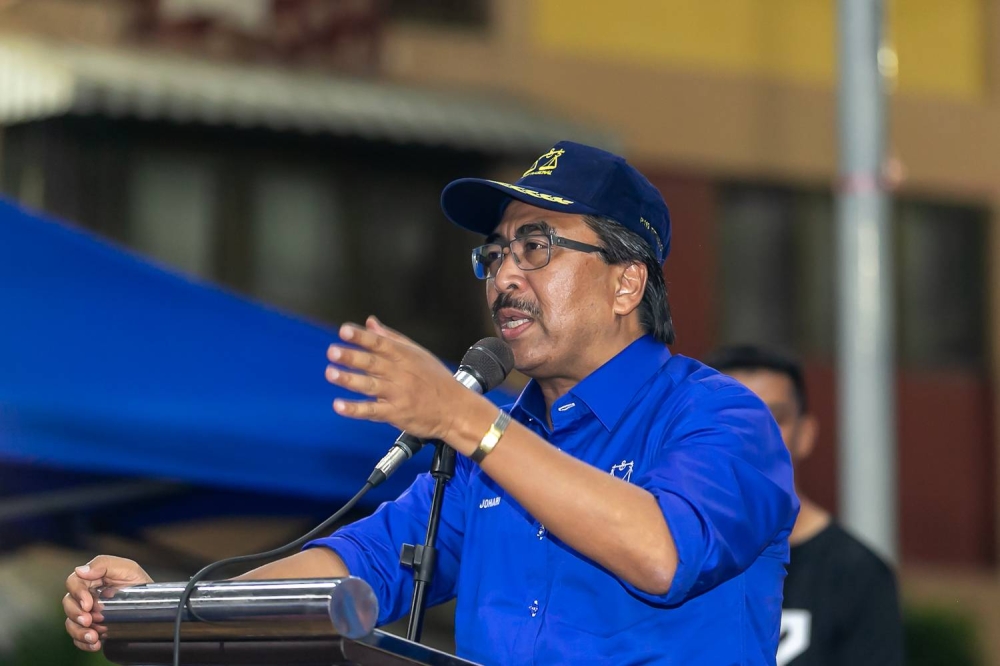
KUALA LUMPUR, Nov 16 — By the time news emerged that he was defeated in the Titiwangsa seat during the 2018 general election, pundits had written off Umno’s Datuk Seri Johari Abdul Ghani’s political future.
But that loss has given him some edge in the seat today. Johari, or Jo Ghani he’s popularly referred as, is now leading the coalition’s push to wrest back what was once a stronghold seat, and capitalising on the four years of groundwork he had quietly put into the constituency.
Having no parliamentary or ministerial duties meant Johari could dedicate himself to building rapport with Titiwangsa’s voters. If his opponents have 13 days to campaign, Johari has had a full-term’s head start since May 2018.
“Even if I lost in the 14th general election, I never stopped working with people, right?” he told Malay Mail while on the campaign trail in Kampung Baru here.
“So much so, because I am very consistent in engaging with the public in my small capacity, not as a MP, through my foundation Bena Nusa,” the former finance minister added.
Johari had represented the constituency in the 13th parliamentary term. Despite a reputable track record as MP based on local feedback, the Umno supreme council member lost in the next general election, likely by association with the 1Malaysia Development Berhad scandal as the finance minister II at the time.
Johari lost to Bersatu’s Datuk Seri Rina Harun by some 4,000 votes as a result and saw his total share of votes fall by over 3,000 compared to the previous election, a testament to the peaking public outrage towards the many scandals and mismanagement under six decades of BN rule.
Four years later, it is unclear if the 1MDB scandal would have any bearing on how Titiwangsa voters would cast their ballot come November 19.
When asked about the matter, Johari was careful not to dismiss the issue outright, but said he is confident that the majority of Titiwangsa’s 81,200 voters have put the scandal far behind them.
What they want, according to the Umno leader, is an effective representative who can solve problems unique to the constituency, which tends to vary depending on the neighbourhood.
In the lower income areas, voters’ aspirations can range from access to welfare for the urban poor to unresolved problems around land titles. In the many public housing projects, households think more about broken amenities and living cost pressure.

Only voters from the more affluent areas may care more about national issues, based on the response of over two dozen voters that Malay Mail spoke to throughout the constituency.
“The general public when they exercise voting rights, they must make sure they don’t let sentiment influence how they vote because if you do that, you’d have a representative that also works based on sentiment,” he said.
“So, what voters need to do is carefully look at the candidates’ track record then you make an informed decision... imagine when it comes to the 15th general election, the MP ran away,” a critical reference to incumbent Rina.
Despite having been minister for a full-term, Rina has developed an image of unavailability among Titiwangsa voters, with the Bersatu leadership’s decision to take her out of the seat and place her in Sepang seemingly affirming such views.
The vacuum appeared to have worked in Johari’s favour. Most Titiwangsa voters that Malay Mail polled clearly viewed the Umno leader favourably, saying he was far more reliable than Rina, despite not being their elected representative or holding any official position in the government, often providing aid and cash almost instantly upon request.
“He is very good,” one elderly woman of Indian ethnicity told Malay Mail after Johari had just visited her family in Kampung Pandan India here.
“He’s helped everyone in my family and every time we need assistance he’s always there, we can find him. He bought my mother a wheelchair and he took care of her medication, all paid for,” the woman, who requested not to be named, added.

A former corporate figure, Johari’s wealth has helped fuel a well-organised election machinery that allows him to run an extensive outreach campaign built primarily around personal engagement, even if there are rumours that BN’s larger campaign has been largely hampered by the lack of fund.
Throughout the campaign, Johari worked around the clock to make house-to-house visits. At night, he would hold small talks within close-knit groups of residents gathered by the local BN facilitators, a favourite campaigning strategy by the coalition because it makes a candidate feels more closer to the community. His aides believe the tactic, while tiring, is paying off.
Still, Johari is cautious about being overly optimistic. He told Malay Mail that his campaign has gotten very “positive” feedback but it still does not necessarily mean they would vote for him.
“What’s important is their votes. They can be positive and all but that doesn’t mean they would surely vote (for me),” he said.
The Umno supreme council member is facing Amanah information chief and former federal territories minister Khalid Abdul Samad, Perikatan Nasional’s Dr Rosni Adam of PAS and Datuk Seri Khairuddin Abu Hassan of Pejuang, the party founded by two-time former prime minister Tun Dr Mahathir Mohamad. - malaymail


No comments:
Post a Comment
Note: Only a member of this blog may post a comment.